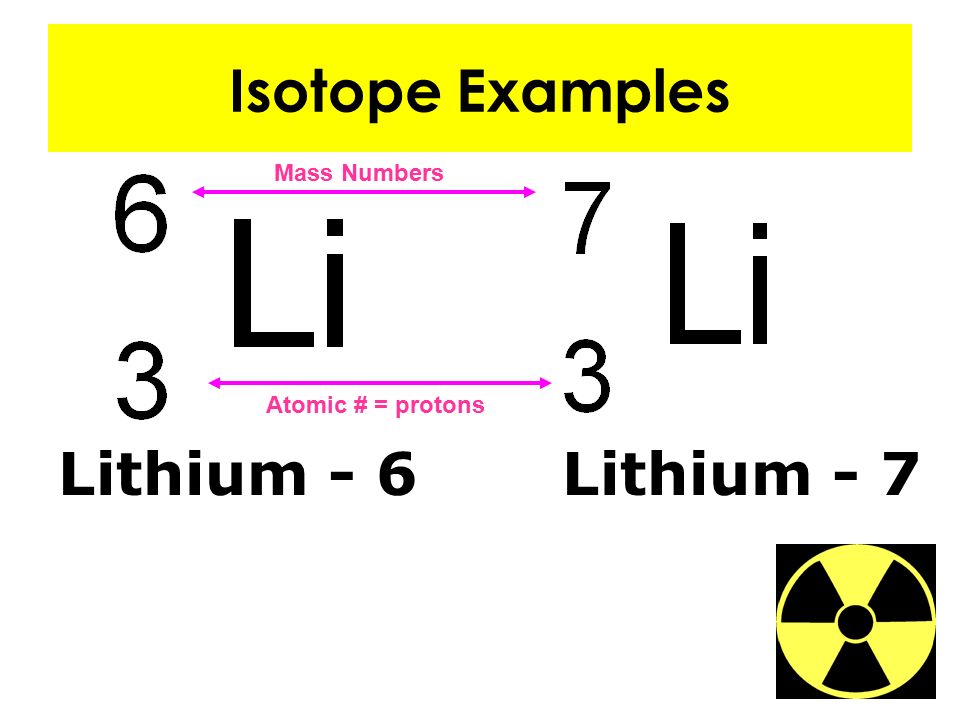
Isotope Notation
Key Questions

The number of protons in the nucleus is called the atomic number. The atomic number of each element is unique. The combined number of protons and neutrons in an atom is called the atomic mass number. While the atomic number always stays the same some elements have atoms with different atomic mass numbers. According to the definitions given, atomic mass which is also called atomic weight is the measured total mass of an element’s atom. Whereas, atomic number is nothing but the total number of neutrons and protons in the nucleus of an atom. Difference Between Atomic Mass and Atomic Number.
Isotopes are atoms of the same element that differ in the number of neutrons in their atomic nuclei. All atoms of the same element have the same number of protons, which is the atomic number of that element. However, because different isotopes have different numbers of neutrons, they can differ in mass number, which is the sum of the protons and neutrons in the nucleus.
Isotope notation, also known as nuclear notation, is important because it allows us to use a visual symbol to easily determine an isotope's mass number, atomic number, and to determine the number of neutrons and protons in the nucleus without having to use a lot of words.
Additionally,#'N'='A'-'Z'# Example 1: What is the isotopic notation for the isotope carbon-14?
From the periodic table, we see that the atomic number (number of protons) for the element carbon is
#6# . The name carbon-14 tells us that this isotope's mass number is#14# . The chemical symbol for carbon is#'C'# . Now write the isotopic notation for carbon-14.#'_6^14'C'# We can determine the number of neutrons as
#14-6=8# neutrons.Example 2. Given the isotopic notation
#'_22^48'Ti'# , identify the following:a) Name of the isotope
b) Mass number
c) Atomic number
d) Number of protons
e) Number of neutrons.Answers:
a) titanium-48
b)#48#
c)#22#
d)#22#
e)#48-22=26# Isotopes are basically atoms which have the same no. of protons but different no. of neutrons at its nucleus.
OR...
Isotopes are atoms that have the same proton no. but different nucleon no.
The chemical properties of an element is determined by its electronic configuration, which is then determined by the no. of protons it has. Since isotopes have the same no of protons at its nucleus, they have the same chemical properties.
However the fact that they have different no. of neutrons means that the isotopes will have different physical properties (e.g. density, mass). For example, if there are two isotopes with different nucleon no., the one which has a higher nucleon no. will be more dense than the other one, since it has more no. of neutrons at its nucleus.

Mass Number Atomic Number
Questions
